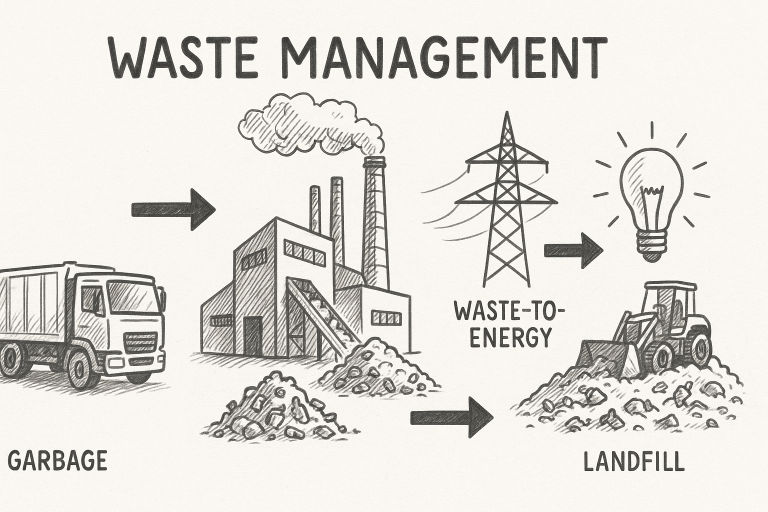Jakarta – The Ministry of Environment/Environmental Control Agency (KLH/BPLH) has allocated Rp70 billion to curb open dumping practices and expand the use of waste-to-energy. The KLH stated this in a press release on Sunday, September 7.
The Ministry of Environment stated that the budget will be used to curb open dumping practices and strengthen the Reuse-Reduce-Recycle Waste Management Facility (TPS3R). In addition to community-based programs, the funds will also be used to improve supporting facilities such as composters and waste containers, as well as educational campaigns to encourage the community to sort waste from home.
The KLH budget for fiscal year 2026 has jumped by nearly 29 per cent, from Rp1.083 trillion in 2025 to Rp1.396 trillion in 2026. According to the KLH, this additional budget is intended to directly benefit the community, particularly in waste management and climate change mitigation.
“The 2026 budget distribution has been prepared to support management, improve environmental quality, and enhance disaster and climate change resilience,” explained Minister of Environment/Head of BPLH, Hanif Faisol Nurofiq.
“Our focus is not only on increasing the number of TPS3R and waste banks, but also on building a new ecosystem where waste can be converted into energy sources in traditional markets and densely populated areas,” said Deputy Minister of Environment/Deputy Head of BPLH, Diaz Hendropriyono.
“This additional budget must truly have an impact on the public in terms of environmental management and protection, not just numbers on paper,” said Diaz.
A stronger legal framework is needed
Deputy Chairman of Commission XII of the Indonesian House of Representatives, Sugeng Suparwoto, reminded that the additional budget should not only be used for technical programs. According to him, the government must also accelerate the discussion of the Climate Change Law and the Waste Management Law as a more solid legal basis.
“In the future, we cannot rely solely on sectoral policies. We need stronger umbrella regulations to ensure that waste management and climate control are carried out sustainably,” Sugeng emphasised.
In addition to waste issues, KLH also targets an increase in Non-Tax State Revenue (PNBP) to Rp1.2 trillion, a sharp increase from the initial target of Rp445 billion. This revenue is expected to come from carbon financing instruments, environmental fines, and business licenses related to the utilisation of natural resources.
However, the government acknowledges that the program’s success will largely depend on the support of local governments. The provision of land for waste collection sites, operational funding, and the strengthening of technical implementation units (UPTD) and environmental public service agencies (PPNS) are considered key to sustainability.
The Minister of Environment stated that the budget is not only allocated for institutional management, but also for enhancing the quality of the environment, strengthening disaster resilience, and addressing climate change adaptation. (Hartatik)
Banner photo: Image generated by OpenAI’s DALL·E via ChatGPT (2025)















